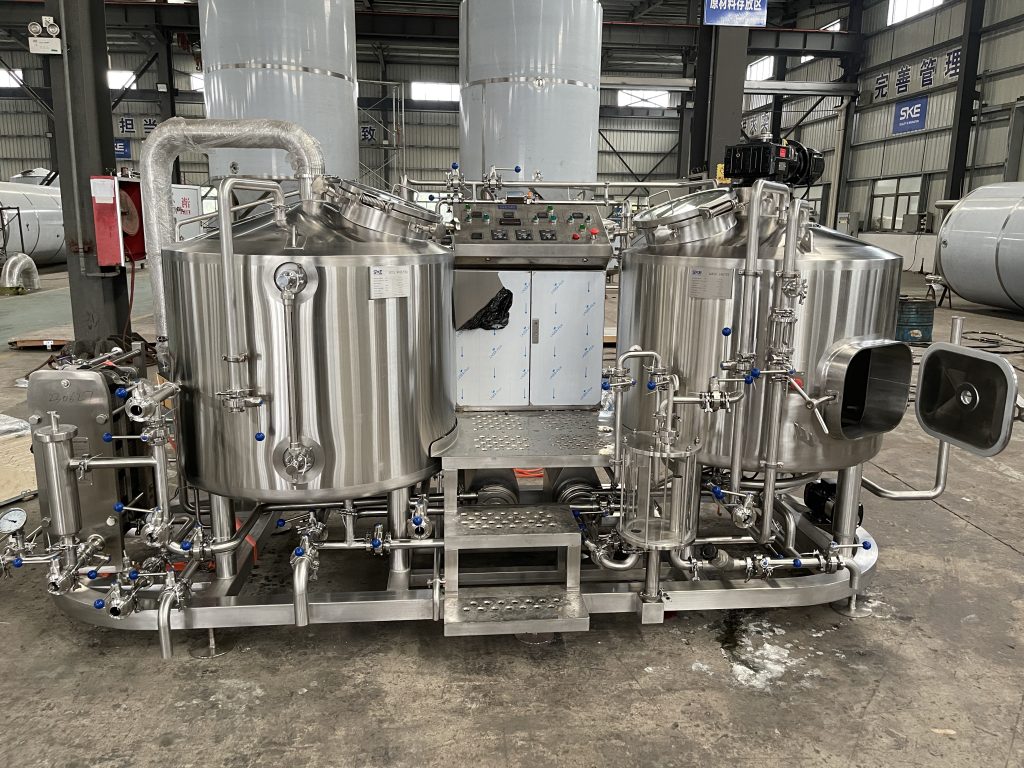Introduction

In the realm of brewing, the quality of brewery equipment stands as a cornerstone for achieving consistent, high-caliber beer. Brewery equipment spans a diverse range of machinery and tools crucial for every stage of the brewing process, from milling grains to packaging the final product. This blog delves into the paramount importance of quality control in brewery equipment, shedding light on its profound influence on product quality, operational efficiency, and the overall success of breweries.
Importance of Quality Brewery Equipment
Quality brewery equipment plays a pivotal role in safeguarding the integrity and flavor profile of beer. Here’s an in-depth look at why stringent quality control is indispensable:
- Consistent Product Quality
- Brewery equipment with precise temperature and pressure control mechanisms ensures consistency in brewing parameters, resulting in beer that meets exacting standards batch after batch.
- For instance, temperature-regulated fermenters and accurate pH meters contribute significantly to maintaining desired flavor profiles.
- Operational Efficiency
- Reliable equipment reduces downtime and enhances production efficiency. This translates to increased throughput and minimized operational costs.
- Examples include automated bottling lines that streamline packaging processes and efficient heat exchangers that expedite wort cooling.
- Long-Term Cost Savings
- Investing in high-quality, durable equipment minimizes the need for frequent replacements and repairs. This not only reduces capital expenditures but also enhances overall profitability.
- Stainless steel tanks and robust valves are prime examples of equipment known for their longevity and minimal maintenance requirements.
Key Components of Brewery Equipment
Effective brewery equipment encompasses several critical components tailored to optimize different facets of the brewing process:
| Component | Function |
|---|---|
| Mash Tun | Converts starches in crushed grains into fermentable sugars |
| Fermenter | Facilitates fermentation of sugars into alcohol |
| Kegging Line | Packages beer into kegs for distribution |
| Filtration System | Removes solid particles from finished beer |
| Heat Exchanger | Rapidly cools wort during brewing process |
These components form the backbone of a brewery’s infrastructure, each contributing uniquely to the overall brewing process and final product quality.
Economic Impact of Quality Brewery Equipment
Investing in quality brewery equipment yields significant economic benefits for breweries. While the initial costs may be higher, the long-term savings and operational efficiencies outweigh these expenses. For example, breweries equipped with efficient bottling lines and stainless steel fermenters experience reduced downtime, lower maintenance costs, and increased production capacity. Moreover, consistent product quality enhances brand reputation, fosters customer loyalty, and expands market reach. This economic advantage underscores the critical importance of prioritizing quality control in brewery equipment as a strategic investment for sustainable growth and profitability in the brewing industry.
Quality Control Measures

Ensuring brewery equipment meets rigorous quality standards requires a systematic approach encompassing:
- Material Selection: Opting for high-grade stainless steel for its corrosion resistance and hygiene benefits.
- Testing and Certification: Conducting stringent tests such as pressure testing and weld inspections to guarantee structural integrity and operational safety.
- Maintenance Protocols: Implementing regular cleaning schedules and preventive maintenance to uphold equipment performance and longevity.
Conclusion
Quality control in brewery equipment serves as the linchpin of successful brewing operations. By investing in superior equipment and rigorous quality assurance protocols, breweries can uphold stringent product standards, optimize operational efficiency, and achieve sustainable growth in a competitive market. As consumer expectations for premium beer continue to rise, maintaining a steadfast focus on equipment quality remains paramount for breweries aiming to excel.
FAQ
Q: Why is stainless steel commonly used in brewery equipment?
A: Stainless steel’s durability, corrosion resistance, and ease of cleaning make it ideal for maintaining hygiene and preserving beer quality throughout the brewing process.
Q: How does quality brewery equipment impact the taste of beer?
A: Precise control over brewing parameters facilitated by quality equipment ensures consistent flavor profiles and enhances overall beer quality.
Q: What challenges do breweries face in maintaining equipment quality?
A: Challenges include adhering to rigorous sanitation standards, conducting regular maintenance, and integrating new technologies to optimize brewing processes.
In conclusion, the significance of quality control in brewery equipment cannot be overstated. It underpins every aspect of brewing, from initial ingredient preparation to final packaging, influencing product quality, operational efficiency, and ultimately, the success of breweries in a competitive industry landscape.

